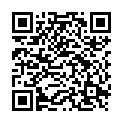|
|
|
| Module code: KI450 |
|
|
4V (4 hours per week) |
|
4 |
| Semester: 4 |
| Mandatory course: yes |
Language of instruction:
German |
Assessment:
Ninety-minute written exam
[updated 20.03.2007]
|
KI450 (P222-0019) Computer Science and Communication Systems, Bachelor, ASPO 01.10.2014
, semester 4, mandatory course
|
60 class hours (= 45 clock hours) over a 15-week period.
The total student study time is 120 hours (equivalent to 4 ECTS credits).
There are therefore 75 hours available for class preparation and follow-up work and exam preparation.
|
Recommended prerequisites (modules):
None.
|
Recommended as prerequisite for:
KI550 Communications Technology and Systems 2
KI600 Laboratory Course in Information and Communication
KI612 Broadband Technology and its Applications
KI683
[updated 01.07.2017]
|
Module coordinator:
Prof. Dr. Horst Wieker |
Lecturer:
Prof. Dr. Horst Wieker
Dipl.-Ing. Mirko Luzaic
[updated 01.07.2017]
|
Learning outcomes:
This course aims to provide students with a thorough understanding of communications technology. After completing the course, students will understand how different computer networks are structured. They will be able to characterize network components and their functions and be able to use this knowledge to solve networking problems.
[updated 13.03.2007]
|
Module content:
1. General principles
2. Functional processes
3. Structure of narrowband networks
4. Functional units
5. Access networks
6. Mobile networks
7. Architecture and components
[updated 13.03.2007]
|
Recommended or required reading:
SIGMUND G., Technik der Netze, Hüthing
GERKE P.R., Digitale Kommunikationsnetze, Springer
HAASS W.D., Handbuch der Kommunikationsnetze, Springer
RÖSSEL H., Jahrbuch 2001 Kommunikationsnetze, Addison-Wesley
[updated 13.03.2007]
|
Module offered in:
SS 2018,
SS 2017,
SS 2016,
SS 2015,
SS 2014,
...
|


